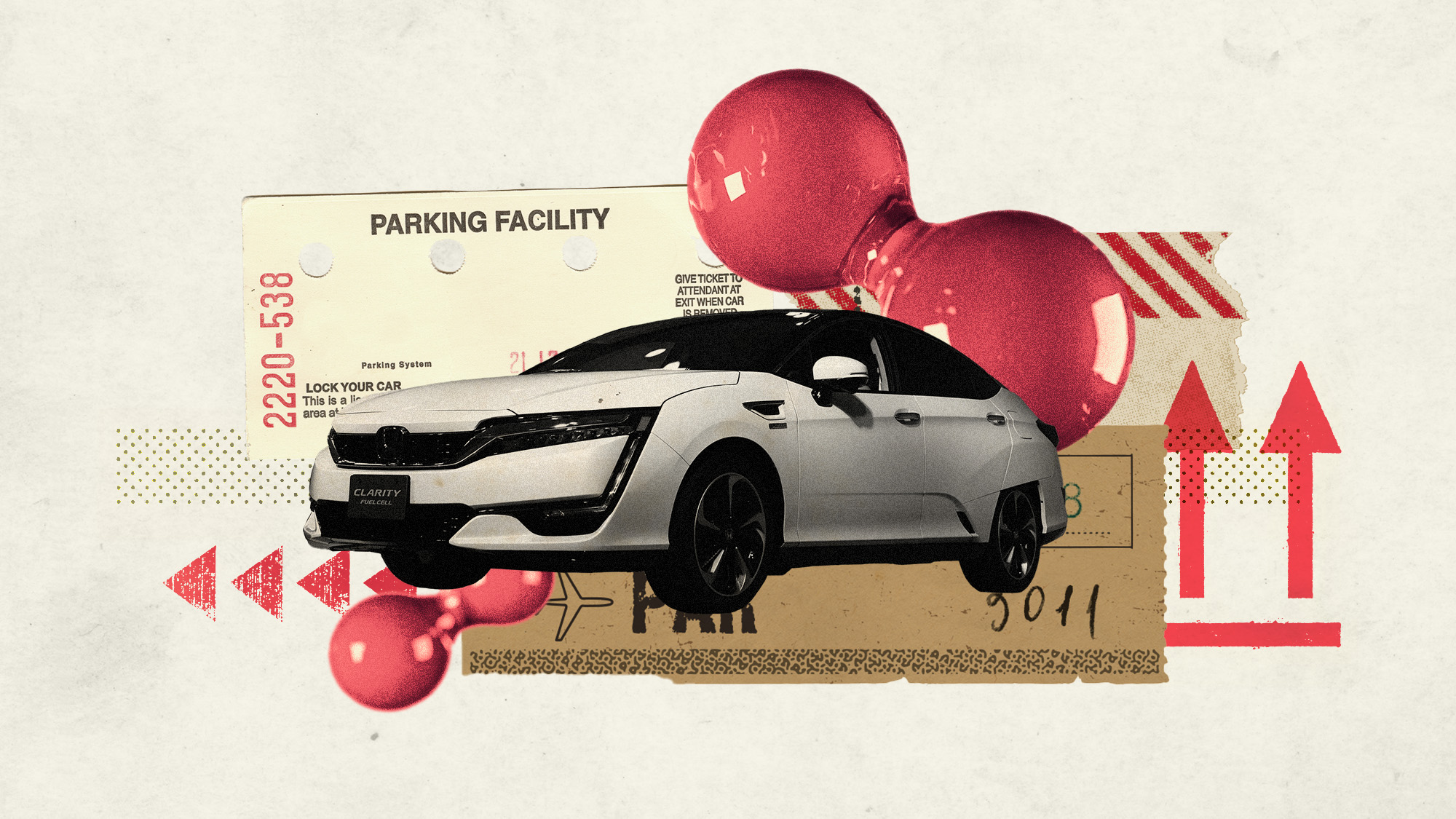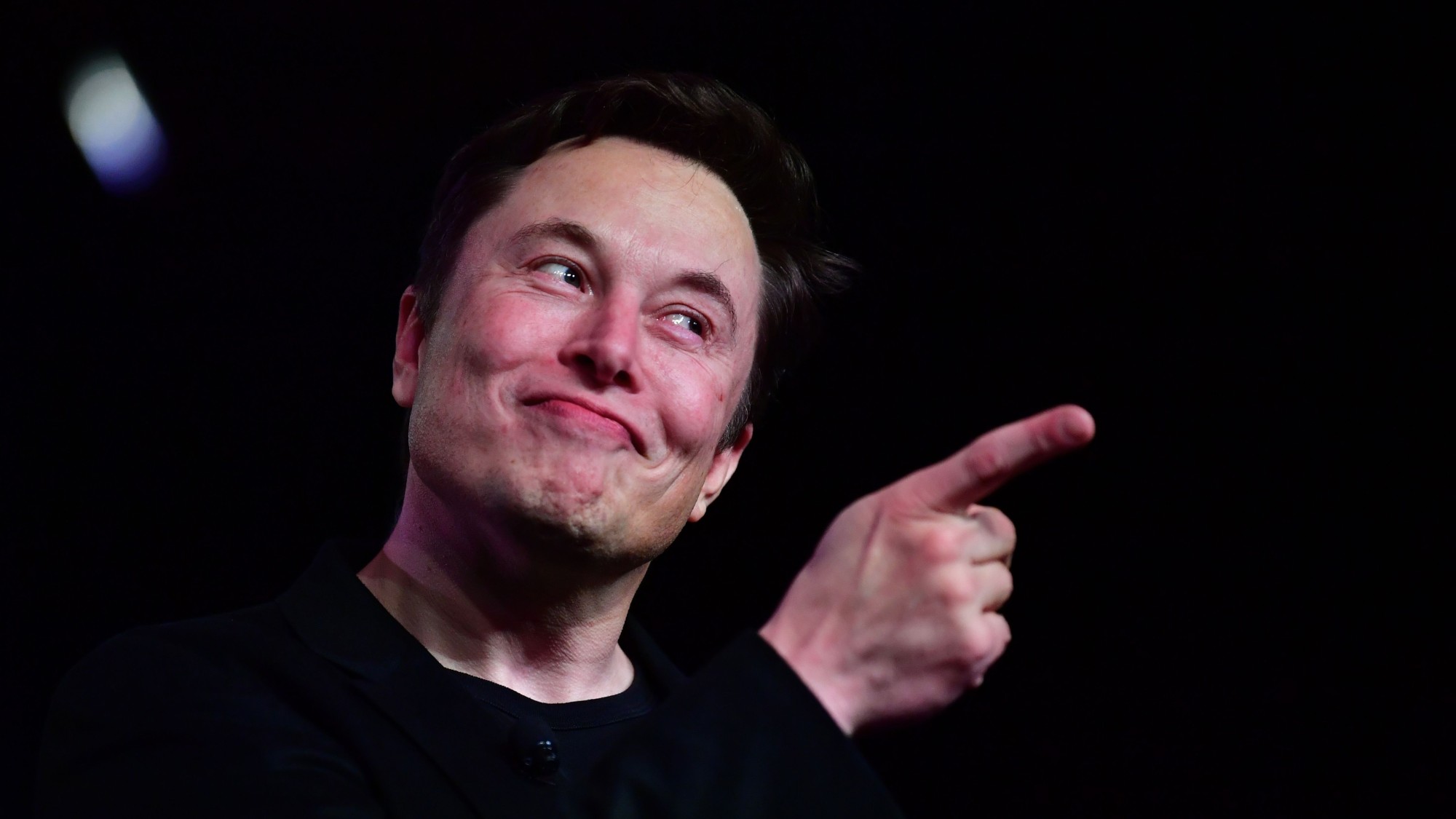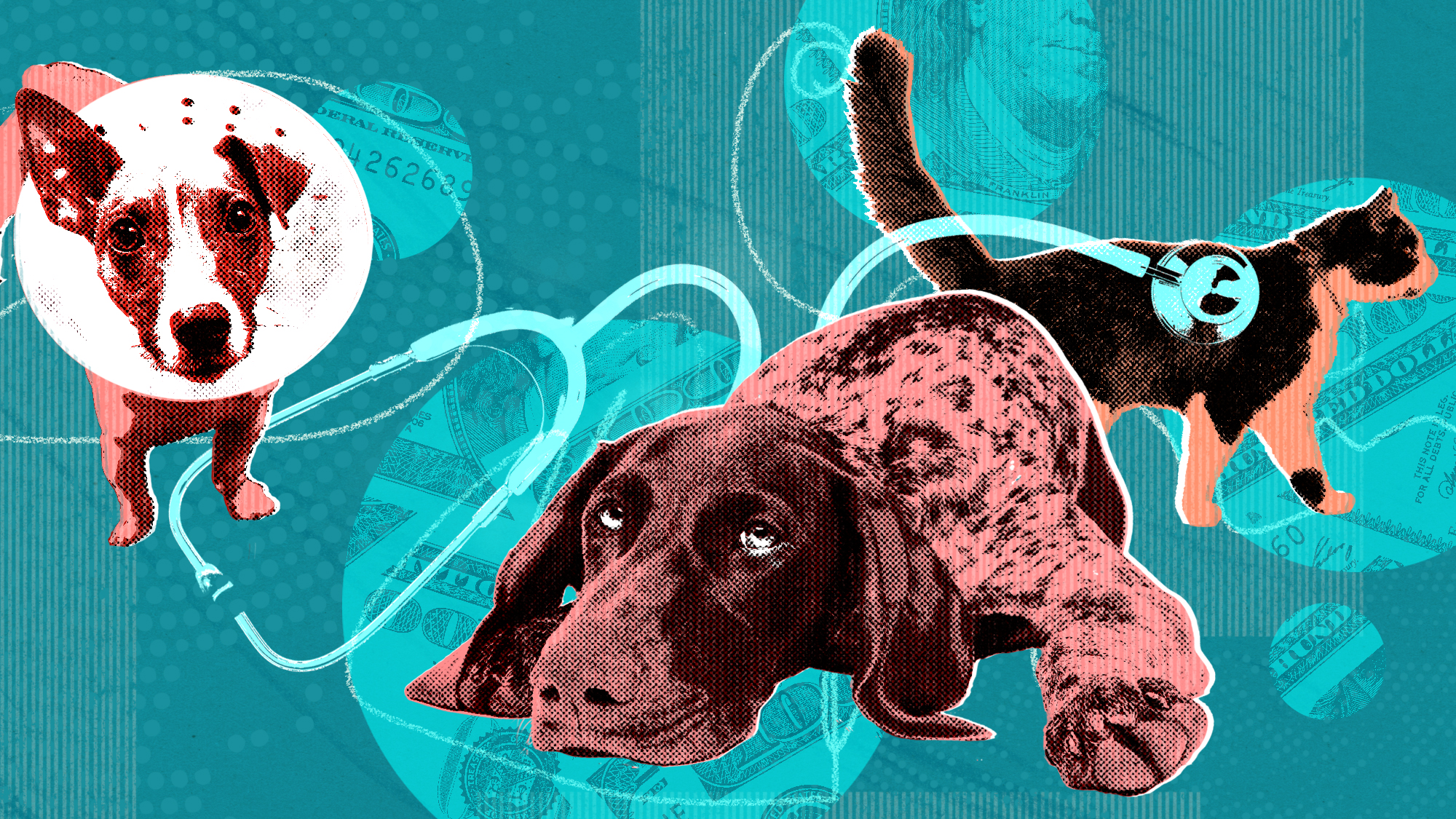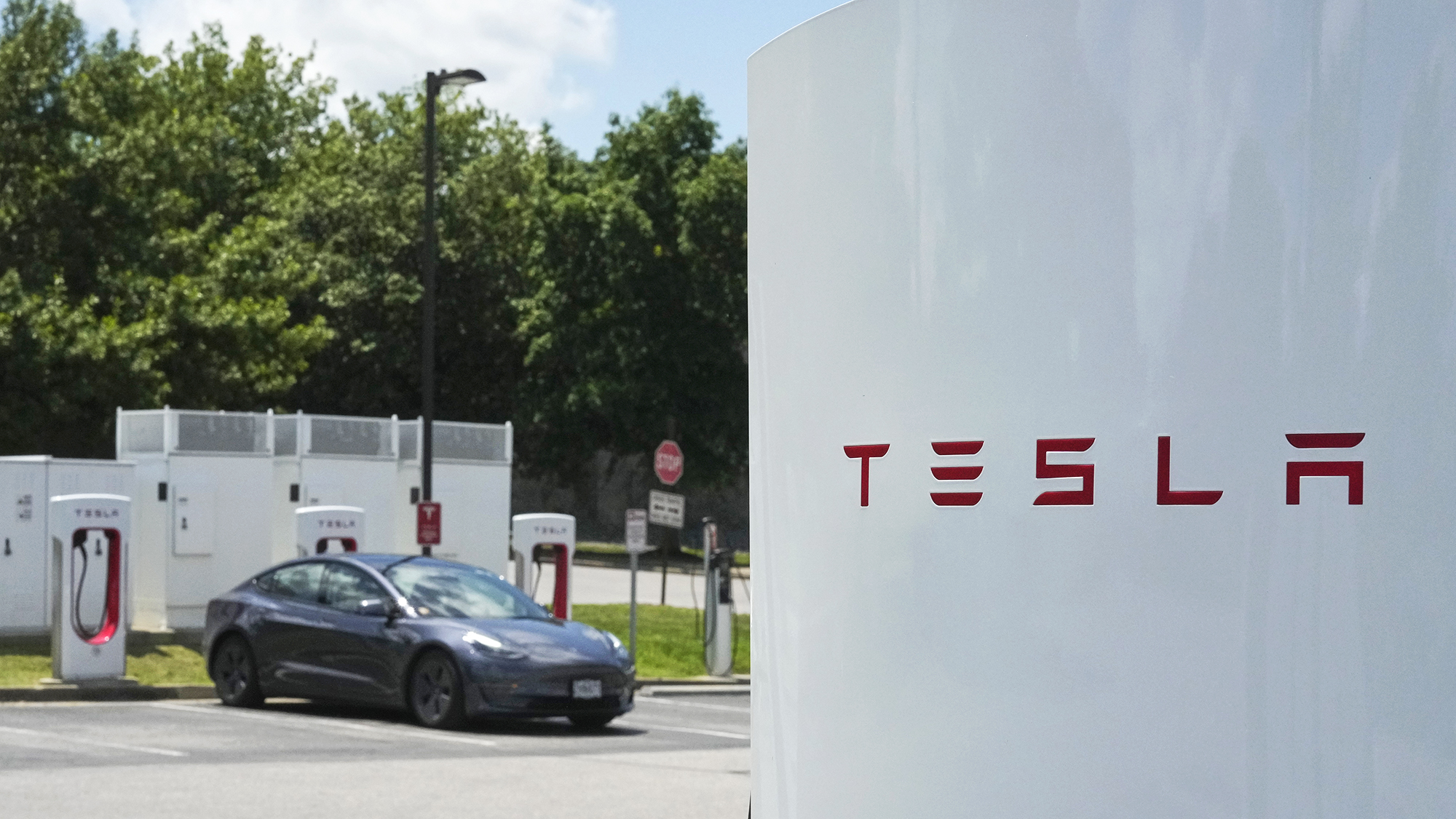Hydrogen cars are trying to be the next big sustainable vehicle
But questions remain as to whether they can overtake battery-powered electric cars


A free daily email with the biggest news stories of the day – and the best features from TheWeek.com
You are now subscribed
Your newsletter sign-up was successful
While electric vehicles (EVs) are having a moment right now, there is an offshoot product looking to replace the battery-powered EV: hydrogen cars. Unlike traditional EVs, which draw electricity directly from a battery source, hydrogen cars mix hydrogen and oxygen into a fuel cell to produce electricity. Though they are not as widespread as battery-powered EVs, hydrogen cars (sometimes called fuel cell electric vehicles or FCEVs) are beginning to gain traction as a legitimate market option.
Honda is the latest automaker to make a hydrogen play in the United States, as the company recently announced it would introduce an FCEV this coming spring that also has a battery backup. This makes Honda the first Japanese automaker to bring this type of technology to the market, and other car brands are expected to follow. Both Honda and its competitor Toyota have "embraced hydrogen as one option to reduce emissions," Bloomberg said.
However, questions still remain about the long-term viability of hydrogen cars. For one, FCEVs are often burdened by high prices. Bloomberg also cited a notable lack of hydrogen infrastructure as something that could turn buyers off. Will hydrogen cars ever be able to overtake traditional EVs as the wave of the future?
The Week
Escape your echo chamber. Get the facts behind the news, plus analysis from multiple perspectives.

Sign up for The Week's Free Newsletters
From our morning news briefing to a weekly Good News Newsletter, get the best of The Week delivered directly to your inbox.
From our morning news briefing to a weekly Good News Newsletter, get the best of The Week delivered directly to your inbox.
What are the benefits and drawbacks of hydrogen cars?
Automakers have been consistently looking for ways to make their products more eco-friendly. This is perhaps the biggest selling point of hydrogen cars, as they are a "zero-emission vehicle, one that emits only water vapor as it carries you down the road," Car and Driver said. These vehicles "emit no carbon dioxide or other harmful exhaust out [of] their tailpipes, just water vapor," the outlet added, and unlike traditional EVs that can take hours to charge, "it takes just five minutes or so to refuel them for another 300- to 400-mile stint."
The fact that water vapor is the only by-product of FCEVs "makes them a promising climate solution — especially as a replacement for noisy, soot-spewing diesel trucks and industrial equipment," Axios said. And beyond their quick charging time, FCEVs can also "offer a longer driving range than electric vehicle batteries."
But despite hydrogen cars' "reputation as an abundant and pollution-free energy source, hydrogen has failed to take off as a fuel for many practical reasons," Axios said. At its core, hydrogen as a natural gas is "expensive to produce," which also undermines the supposed ecological benefits of hydrogen cars.
A "confluence of unfortunate events — tech limitations, rising station operating costs, policy changes, even the Russian invasion of Ukraine — have hiked hydrogen fuel prices and taken hydrogen fueling stations offline," Wired said. This brings up another, more glaring problem: There is simply no nationwide network of hydrogen stations.
A free daily email with the biggest news stories of the day – and the best features from TheWeek.com
California is the only state so far that has experimented with FCEVs on a widespread basis, as the Golden State received a $1.2 federal grant last year to build up its hydrogen infrastructure. But for those outside of California, there are no options — "only one other state, Hawaii, even has a publicly available hydrogen fuel station," Wired said. For station suppliers, transporting volatile hydrogen can also be a dangerous undertaking, making the task even harder.
Will hydrogen cars ever replace traditional EVs?
For now, it appears hydrogen cars have an uphill battle to catch traditional EVs. Even in California, the only state where they are seen on a widespread scale, there were "just under 12,000 fuel cell electric vehicles" in 2022, said Wired. Meanwhile, more than 918,000 traditional EVs were sold across the U.S. that year, according to Statista, with millions more already on the streets.
Beyond the limited availability of refueling stations, hydrogen cars are also significantly less fuel-efficient than their battery-powered counterparts. This is because hydrogen "takes about three times more electricity to make the hydrogen to power a car than it does just to charge a battery," David Cebon, a professor of mechanical engineering at the University of Cambridge, said to The Guardian. Statistics cited by the outlet noted that the traditional EV maximizes 94% of its fuel efficiency, while FCEVs maximize just 68%.
So will hydrogen cars overtake traditional EVs? "The answer is no," Michael Liebreich, the founder of the analyst firm Bloomberg New Energy Finance, said to The Guardian. As a result of the logistical issues surrounding hydrogen, automakers betting big on FCEVs are "just wrong," Liebreich said.
Justin Klawans has worked as a staff writer at The Week since 2022. He began his career covering local news before joining Newsweek as a breaking news reporter, where he wrote about politics, national and global affairs, business, crime, sports, film, television and other news. Justin has also freelanced for outlets including Collider and United Press International.
-
 How the FCC’s ‘equal time’ rule works
How the FCC’s ‘equal time’ rule worksIn the Spotlight The law is at the heart of the Colbert-CBS conflict
-
 What is the endgame in the DHS shutdown?
What is the endgame in the DHS shutdown?Today’s Big Question Democrats want to rein in ICE’s immigration crackdown
-
 ‘Poor time management isn’t just an inconvenience’
‘Poor time management isn’t just an inconvenience’Instant Opinion Opinion, comment and editorials of the day
-
 SiriusXM hopes a new Howard Stern deal can turn its fortunes around
SiriusXM hopes a new Howard Stern deal can turn its fortunes aroundThe Explainer The company has been steadily losing subscribers
-
 How Tesla can make Elon Musk the world’s first trillionaire
How Tesla can make Elon Musk the world’s first trillionaireIn The Spotlight The package agreed by the Tesla board outlines several key milestones over a 10-year period
-
 Being a school crossing guard has become a deadly job
Being a school crossing guard has become a deadly jobUnder the Radar At least 230 crossing guards have been hit by cars over the last decade
-
 Rising costs are making it harder for people to afford pets
Rising costs are making it harder for people to afford petsUnder the Radar Shelters are filling up as a result
-
 Tesla reports plummeting profits
Tesla reports plummeting profitsSpeed Read The company may soon face more problems with the expiration of federal electric vehicle tax credits
-
 Jared and Ivanka's Albanian island
Jared and Ivanka's Albanian islandUnder The Radar The deal to develop Sazan has been met with widespread opposition
-
 AI is creating a luxury housing renaissance in San Francisco
AI is creating a luxury housing renaissance in San FranciscoUnder the Radar Luxury homes in the city can range from $7 million to above $20 million
-
 Exurbs: America's biggest housing trend you haven't heard of
Exurbs: America's biggest housing trend you haven't heard ofUnder the Radar Northeastern exurbs were the nation's biggest housing markets in 2024
